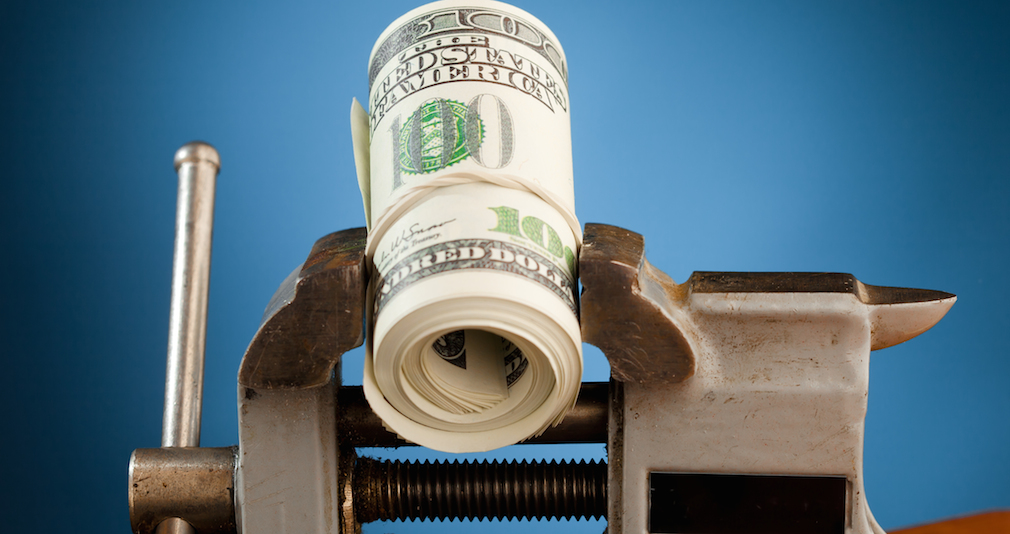With Fannie Mae and Freddie Mac preparing to report their fourth quarter and full-year financial results for 2015 later this week, several national groups of community lenders are calling on the Federal Housing Finance Agency to suspend the practice of sending dividends from Fannie and Freddie to the Department of Treasury.
In a letter sent Wednesday to FHFA Director Mel Watt, the Community Home Lenders Association, the Community Mortgage Lenders of America, and the Independent Community Bankers of America argue that the government-sponsored enterprises should be allowed to rebuild their capital.
But unlike a similar request from November, the groups think the GSEs should be allowed to recapitalize not only to enable them to fully support the country’s housing market, but rather avoid having to take another draw from the Treasury if the GSEs suffer a loss, as Freddie Mac did in the third quarter.
Freddie took a net loss of $475 million for the third quarter of 2015, its first in four years, due to “accounting associated with (Freddie’s) use of derivatives, whereby the derivatives are marked-to market but many of the assets and liabilities being hedged are not.”
The community lenders argue that the GSEs should be allowed to keep any profit they make in the fourth quarter to protect against any losses the GSEs may take due to shifting interest rates.
“We are writing to you in your capacity as Fannie Mae and Freddie Mac’s conservator and safety and soundness regulator, to urge suspension of the payment of dividends on the senior preferred stock held by the U.S. Treasury,” the groups wrote in the joint letter. “The purpose of this suspension would be to allow the GSEs to build a capital buffer to deal with potential earnings volatility driven by external economic developments rather than by actions or missteps by the GSEs.”
Under the Preferred Stock Purchase Agreements that went into effect when the government took the GSEs into conservatorship, Fannie and Freddie send dividends to the Treasury each quarter.
For the third quarter, Fannie Mae sent $2.2 billion to the Treasury, while Freddie’s loss was absorbed by the GSE’s capital, but the community lenders caution that with the GSEs capital set to shrink, any more losses could lead to another draw from the government.
“The plunge in interest rates during this first quarter, with the potential for possible negative interest rates going forward, creates a reasonable fear that one or both GSEs may report a loss due to non-cash hedging charges,” the groups write.
“Going forward however the current terms of the PSPAs, which require the GSEs to steadily reduce their existing capital cushions, may see one or both GSEs experience a non-cash hedging charge of a magnitude sufficient to exhaust their thin capital cushions,” the groups continue. “This event could occur as early as May 2016 when the GSEs report their first quarter results.”
The groups argue that “unexpectedly” falling interest rates, coupled with the dwindling capital held by the GSEs, creates “political risk” for the GSEs at a time when the country’s housing market is still unsettled.
“Given the above, we strongly urge FHFA to consider reserving any fourth quarter 2015 net positive earnings onto the books of the GSEs, as well as moving forward with the creation of a plan for the GSEs to rebuild capital – something FHFA has the absolute ability to do, in its sole discretion,” the groups write.
If the FHFA doesn’t exercise this option, the groups say that any GSE dividend will go into U.S. general obligations, and may be “dearly needed” by one or both of the GSEs in less than three months.
“This seems the opposite of sound prudential management,” the groups write.
“We hope no draws become necessary, but clearly the odds have risen that one may occur,” the groups conclude. “The GSEs have already returned over $241 billion after drawing $187 billion from the Treasury. And all regulated U.S. financial institutions retain capital cushions precisely to guard against surprise negative outcomes such as the one described herein.”
The groups’ letter can be read in full here.






